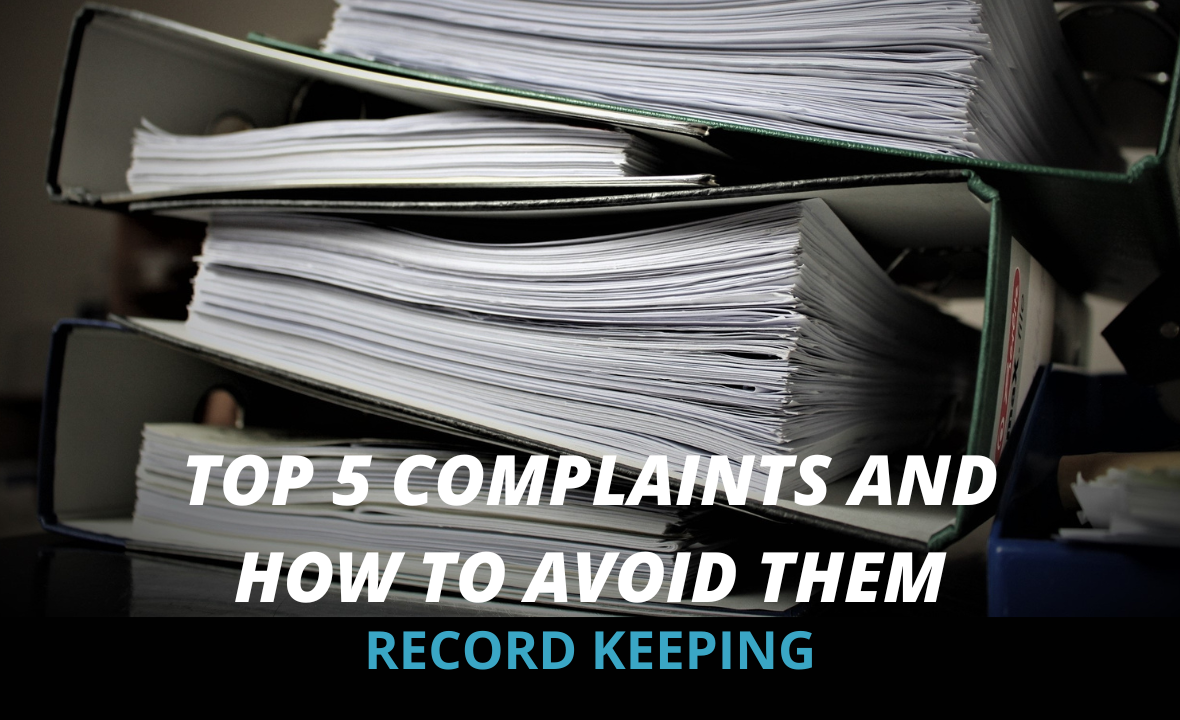
Top 5 Complaints and How to Avoid Them: Record Keeping
Posted On: October 5, 2022
Every year the College receives various complaints about naturopaths’ conduct, practice, and behaviour. The College is legally obligated to investigate each complaint that it receives. Although complaints differ, there are five areas of commonality that stand out and are most often investigated by the Inquiries, Complaints and Reports Committee (ICRC). This 5-part blog series will explore the top five areas of complaints and tips on how NDs can avoid them.
2. Record Keeping
It’s commonly the case that when a complaint is made and the ND is required to provide a patient record, the record is found to be illegible or incomplete.
When a patient record is obtained during an investigation, it’s expected that the patient record will not only be in compliance with the College’s Standard of Practice for Record Keeping but will also provide a clear picture of the patient’s health, health history, conditions assessed and the naturopathic services provided.
The documentation in a patient’s record carries considerable weight when being reviewed by the ICRC. What is or isn’t documented in a patient’s record says a lot about the potential quality of care being delivered by the ND. It is the ICRC’s view that anything not documented in a patient’s record may be deemed not to have happened, this includes discussions with the patient and obtaining informed consent. Therefore, it’s in the interest of both the ND and the patient that record keeping requirements are met.
Tips for avoiding record keeping complaints
- Ensure patient notes are accurate, legible, and comprehensive (patient name/number on every page, no highlighting of text, in chronological order and consecutively numbered and dates).
- Ensure that financial and appointment records are clearly itemized and match both the appointment and patient record.
- Recording more information than less is the best approach and the record should be made as soon as possible following a visit.
- Document information objectively and factually, being mindful of how the patient or others might interpret your records. Using the SOAP format is highly recommended.
- Always document the patient’s consent and any discussions with the patient, including questions or concerns the patient may have. Remember that checking a “Consent received” checkbox in your electronic record system may not be sufficient for documenting the patient’s informed
- Save copies of all your correspondence with the patient and/or related to the patient when communicating with their other healthcare providers. Document your calls and online appointments with the patient.
- Make sure you have access to all patient records for at least 10 years after you move or close your practice.
- Review the College’s Standard of Practice on Record Keeping regularly to stay sharp.
Would you like to learn more about the Inquiries, Complaints and Reports Committee? Join us for our next edition of our In Conversation With townhall series, featuring the Inquiries and Complaints team.
